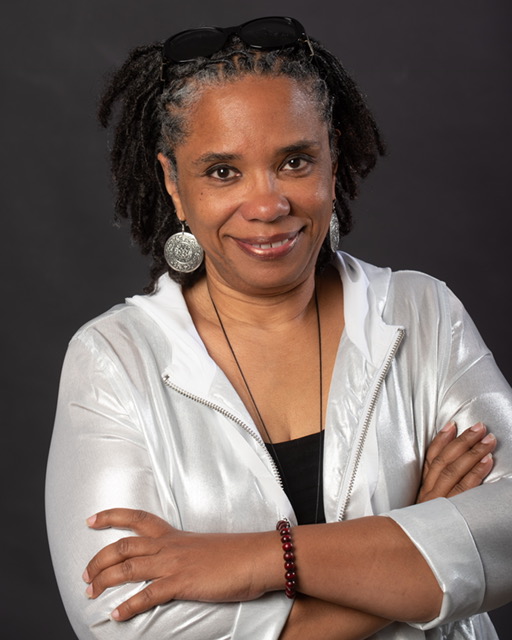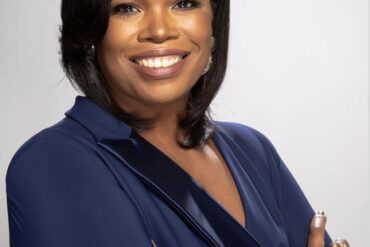Traci O’Neal is a Chicago-based attorney who has all the bona fides of professional and personal success.
But her new book, The Exceptional Negro: Racism, White Privilege and the Lie of Respectability Politics, tells the story of how O’Neal went from being a black, female attorney living a very solidly middle-class life, feeling insulated from “too much” racism because of her education and socio-economic status, to the realization that at the end of day, she is still just a Negro in the eyes of white America, albeit an exceptional one.
O’Neal earned her Bachelor of Science degree at Florida A&M University, her law degree at Ohio State University, and is licensed to practice law in Georgia and Illinois. She’s a member of the board of directors of a local hospital, a human resources professional, and for seven years was a member of the large, urban school district in Elgin, Illinois. Traci earned a 2012 YWCA Leader Award and the 2018 City of Elgin’s Human Relations Commission’s Dr. Martin Luther King, Jr. Humanitarian Award.
But she was thrust into the national spotlight last fall when local threats sparked by a Facebook post she made grew into a national racist outcry after a former United States presidential candidate singled her out on social media.
What followed was a deeply disturbing and widespread campaign of hatred and egregiously racist attacks, including death threats, that reinforced what Traci had come to understand – that there’s no room in white America for an Exceptional Negro who has gone off the plantation, so to speak.
The Exceptional Negro is a frank discussion of race, law, and politics examined through Traci’s lens as a “reformed Exceptional Negro.” In it, she issues a call to action for white folks to dismantle systemic racism and for Black folks to consider an enumerated “Pro-Black Reconstruction Strategy” to lessen dependence on America’s racist systems, and thus, the impact of racism in their lives.
Traci now speaks frequently on diversity, equity, and radical inclusion in organizations and school districts; the intersection of race, law, and politics; harnessing Black women’s political power; and leadership topics.
N’DIGO sat with O’Neal recently to discuss her book, which includes a somber dedication to Black people who have been killed by the police under questionable circumstances in recent years, and was published last month.
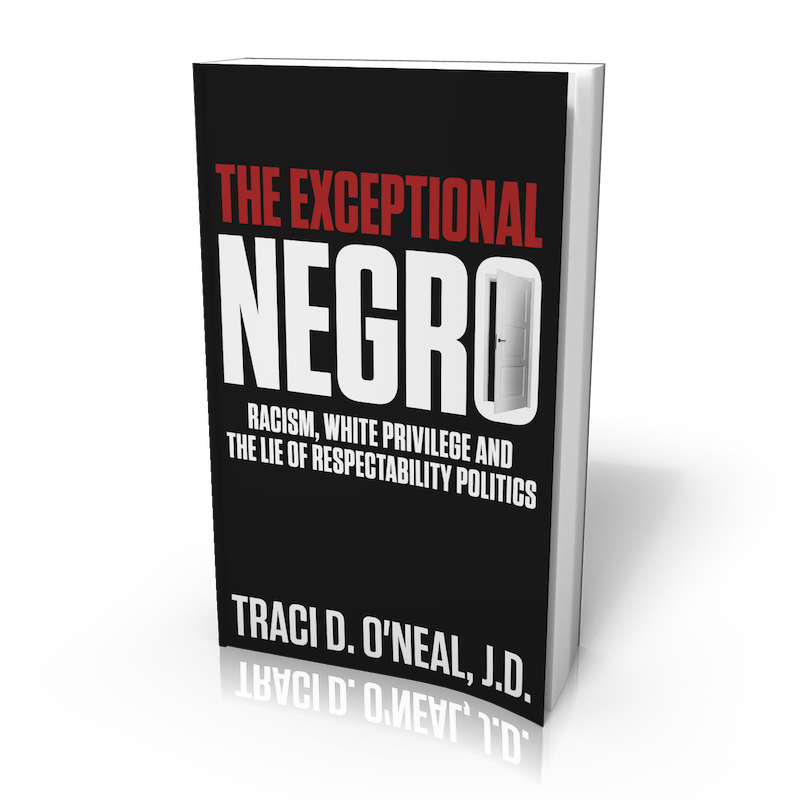
N’DIGO: What is an Exceptional Negro?
Traci O’Neal: An Exceptional Negro is a Black person who to white people is unlike other Black people they use as reference points. Exceptional Negroes do not fit the stereotypical thug, welfare queen, baby mama, baby daddy, and various other negative images associated with Black folks. We speak perfect English, we are well-cultured and we can adapt and code-switch to “fit in” with their circles.
But the term “Exceptional Negro” is not a compliment. It is how white people “white wash” us to make us more palatable, to “otherize” and distance us from being Black, so that they can interact with us as if they believe us to be their equals.
Are you an Exceptional Negro, and how so? Talk about your “exceptional” background.
Absolutely, I am. My siblings and I were raised by two well-educated parents. My mother has a doctorate degree, while my father earned his Masters and finished all of his doctorate coursework. My parents raised us to value education, do well in school and to go to college and ultimately go to graduate school. My sister has her MBA and my brother and I are both attorneys.
We traveled, earned good grades, played instruments, lived in overwhelmingly predominantly white neighborhoods and attended overwhelmingly predominantly white schools once we moved to the Chicago area when I was eight. And white people saw us and interacted with us as “unlike other Black people.” We were “different” and as a result, we enjoyed a certain cache and status in our neighborhood, schools and community.
What is the book about as it relates to being an Exceptional Negro?
Ultimately, the book is about the fact that although Exceptional Negroes seemingly move easily through white political, social and business circles, the truth is we have access, but not full acceptance. Our access extends right up to the point where we are seen as “too Black.”
If white people are reminded that we are Black by our actions, our viewpoints, our choices, our protests – especially and particularly our protests – we are quickly reminded that in reality, we are still just Negroes in white America’s eyes. The book discusses the intersection of race, law and politics and also the problem with Black people buying into the lie of respectability politics.
What is respectability politics?
Author and professor Evelyn Brooks Higginbotham first coined the phrase, applying it to when minority and/or marginalized groups believe and teach each other that better behavior will get them better treatment. White America generally believes that there is nothing that stops Black folks from attaining the same success except ourselves, if only we would just act right!
That is the classic Exceptional Negro syndrome and Black people buy into it and try to enforce it in our own communities. I unwittingly bought into it at one time.
We admonish each other that good diction and good behavior, especially coupled with our degrees and the plethora of our other elite pedigree calling cards, open doors and provide entree into our respective communities’ inner circles; allow us to mix it up in the “right” social circles; let us hold sway with elected officials and indeed to be elected officials, and allow us to enjoy some modicum of influence with the “powers that be.”
In other words, we can have what white people have, if we only behave like white people behave! That is called “respectability politics” and we need to stop it because it’s a wrong-headed notion.
Part of the book is about your coming into consciousness about what’s really going on in our racist society, your personal road to becoming “woke.” What kind of odyssey was that for you?
Cognitive dissonance! In my early adulthood, I actually believed that I was “different” and not like what I call in the book, “Those Negroes.” But yet, the older I got, the more I realized that I was having experiences of being discriminated against, facing blatant racism, and being disrespected, just like any other Black person.
I had trouble reconciling the belief that my education and status shielded me from “too much” racism with the fact that I was clearly facing “too much racism” – as if there is some acceptable level. But I was busy practicing law, building my career and raising kids, so I didn’t interrogate that dissonance too deeply, or truthfully, at all. I compartmentalized the racial experiences into isolated incidents.
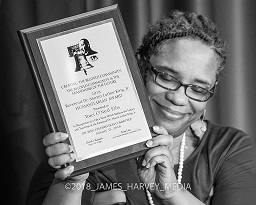
Do you think that some Exceptional Negroes are really just trying to be Acceptable Negroes and don’t want to be woke?
I think that some Exceptional Negroes are doing what I used to do: Embracing their Exceptional Negro crown. It has benefits! They are not “Acceptable Negroes” – that doesn’t have the perks. They are definitely EXCEPTIONAL Negroes. But they’ve bought into their exceptional status and consciously or unconsciously recognize that to keep it, you can’t make white folks “too” mad.
Exceptional Negroes must play the role to retain the access and will not ever have true acceptance. But even that access will be revoked if you do not play the role as white people have prescribed it. But at some point, we Exceptional Negroes have to be about rejecting the “crown” that seeks to divide us and taking up the mantle to unite us and move collectively forward to take charge of our own destiny. We do not need white people’s permission or acceptance in that regard.
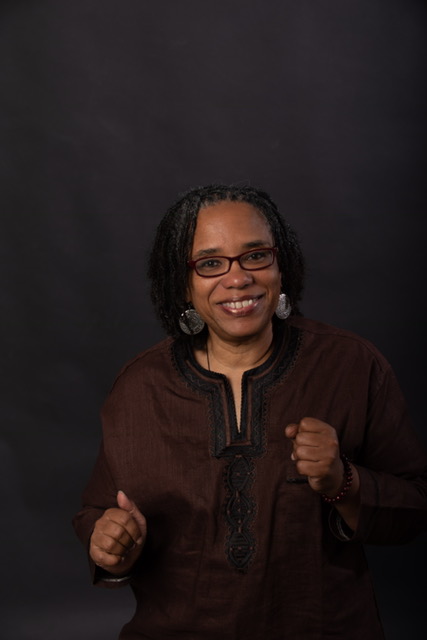
(Photos by James Harvey Photography)
Who is the audience for this book? For example, what’s in it for readers who are not Exceptional Negroes, whatever else they may be? What do they get out of this?
My primary purposes in writing this book were to: a) wake up any Black folks who buy into the Exceptional Negro as a status symbol; b) to affirm Black people in their experiences to help resolve any cognitive dissonance; c) to call Exceptional Negroes to action to use their “status” for the betterment of Black people collectively (and not just for the benefit of the Exceptionals); d) to begin a conversation about how we as Black people can distance ourselves from and reduce the impact on us, of this country’s racist and oppressive systems; and finally, and secondarily, to call white people who are seeking to understand “white privilege” and “allyship” into action.
What was the impetus for you writing the book? Was it the Facebook flag incident, or were you coming around to your convictions before then?
#FlagGate, as I affectionately call it, was only the impetus for finishing the book, not for writing it. I actually began writing it in 2014 and had been talking about it for about a year before that. So I wrote off and on, in fits and spurts, for three years and was actually stuck on how to finish it until #FlagGate.
Talk a little about the Facebook incident.
Basically, on my personal Facebook page, I made a very derogatory comment about the American flag in connection with 45’s – as I refer to the person sitting in the White House “playing President” – condemnation of the peacefully protesting NFL players as “sons of bitches” and his call for them to be fired.
Some unknown Facebook “friend” took a screen shot of my post and sent it to some Tea Party members. One of them posted it on her FB page, and since she and I were both elected officials on the same governing body in Elgin, Illinois – the school board – it got a lot of local attention, including newspaper articles. White people were irrationally angry about my comment and blasted me, including making death threats against me.
It was mostly a local fray at first until a former Republican candidate for President of the United States in the 2016 election got involved. He posted my picture and my comment on his Facebook page and told his rabid fans to “make me famous.” That move sent white supremacists, run of the mill racists, and neo-Nazis to my public official Facebook page, which is accessible to the public, en masse.
By the time the controversy died down, I had over 3,000 unique comments calling me vile, racist names, making death threats against me, and generally calling for my professional and physical demise. It’s died down now, but it has not gone away. I still occasionally get nasty private messages or even voicemails from these people. I included screen shots of several of these vile Facebook comments in the book.

Undergoing #FlagGate and writing this book have had significant ramifications on your life, to the point that it’s given you a new direction. You resigned from the school board and the Daily Herald quoted you as saying that the Facebook incident “has created numerous opportunities for me to take my social justice activism to the national level.” Talk about your new life as a professional activist.
Well, the POTUS candidate sent out a call to make me famous, and in many ways he did, albeit clearly not in the way that he thought he would. So my speaking engagements have significantly increased (along with my speaker fee!) and I now have the opportunity to work on policy issues of concern to the collective Black community, e.g., education equity, criminal justice reforms, healthcare equity, and the like with others in ways I never dreamed of before.
You recently gave a TEDx Talk. Was it related to your new activist consciousness and how did that go; how was the reception?
The TEDx Talk was definitely related to my activism. The title of it is The Exceptional Negro: Fighting to Be Seen in a Colorblind Society. It is basically my protest against white people who strive to be colorblind. I believe that colorblindness actually perpetuates racism rather than resolves it. While I address the issue pretty strongly in the book, I approached it more gently, although firmly, at the TEDx Conference.
You had your first book signing recently. How did that go and how was the book received?
The book launch party was very successful. I had over a hundred people come through, sold out of my first inventory of books and received fabulous feedback. I am overwhelmed with gratitude for how well received the book has been so far.
What do your family and friends think about all of this and the suddenness of it?
My family and friends are very supportive, my biggest fans. They are excited for me and to see what the future holds for my speaking and writing. They’ve already given me suggestions for a second book, which I can’t even think about right now!
I am grateful for the support, but I’m very mindful that the book is not doing well because it is a great piece of fiction writing; it is doing well because it is real-time non-fiction.
This country is in the midst of a new civil rights movement and the stakes are every bit as high now as they were in the 1960s. Some of the stakes have changed, but the severity has not. The fact that my book is borne out of this pain is sobering.
How can readers get the book or invite you to speak?
The book is available at most online book retailers, so Amazon, BarnesandNoble.com, etc. Also, I will be doing my first Chicago book talk on Friday, August 3rd at Women and Children First Bookstore, located at 5233 North Clark Street. I’m working on other events in Chicago at other independent bookstores as well.
I welcome the opportunity to speak to groups, book clubs, and organizations because I look forward to connecting with people who love justice.
So, please visit my website at www.tracioneal.com, and follow me on Facebook at https://www.facebook.com/theexceptionalnegro/, Twitter @TENSpeaks or Instagram at tracionealspeakerauthor.


